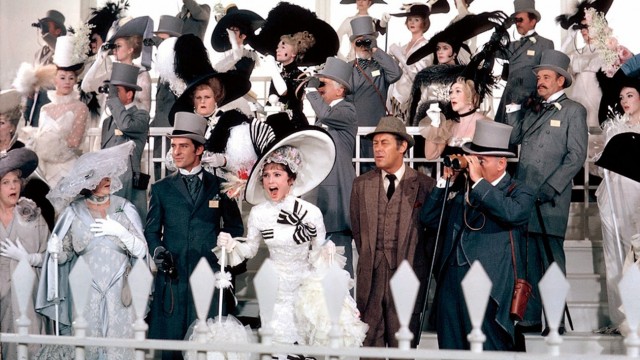Every film is expected to make money in one way or another; either it’s supposed to make money in the box office, it’s supposed to make money through merchandising or product placement, or it’s supposed to make money by triggering weird loopholes in German tax law. Maybe they aren’t expected to make a lot of money, especially by the time they’re finished and everyone involved can look at it and say, “Oh.” Still, when the script is put into production, it’s very seldom because the story is Just So Important and needs to be told so much that it doesn’t matter if it doesn’t make a dime. After all, why tell the story that no one will hear?
In my ideal world, studios would accept a few losses every now and again just because they were good films that ought to be made, but we don’t live in my ideal world. Even if we did, though, those films would have to be paid for somehow, and that’s where the blockbuster comes in. Not every film needs to make a billion dollars—that they’d have to make substantially less if studios would just make more lower-budget movies is a discussion for a different day—or even necessarily break even, because that’s what the films that do make that much are for. They cover the expenses of good films that might not even make back their budget.
All that said, I don’t think there’s anything wrong with legitimately enjoying a blockbuster now and again. I am not advocating for turning off your brain. I can’t do that at all; it’s why I get so angry when people suggest meditation as a treatment for bipolar disorder. (Also that meditation does not cure bipolar disorder and what is wrong with you people?) I was the person contemplating predator-prey ratios of Skull Island. I’m willing to believe that a man can fly, but there has to be more to the movie than just how well he fills out his tights while he does it.
What we forget is that not all blockbusters are dumb. Not all blockbusters ask you to turn off your brain. Sometimes, they’ll even reward you for paying attention. I like that, and I think we ought to recognize it. And, yes, you can get some good writing, some good acting, some good cinematography—whatever your cinematic hobbyhorse, somebody in some blockbuster did it well. I think too many people write off movies entirely once their budget gets too high, as though all expensive movies were Armageddon. They aren’t, and they never have been.
It would take more research than I care to struggle through right now to figure out who the most popular director of the mid-twentieth century was, but I’m willing to bet that Alfred Hitchcock and John Ford are pretty high on that list. Okay, so Psycho was shot on a shoestring budget using the crew of Alfred Hitchcock Presents. You can’t say that about North by Northwest. So The Man Who Shot Liberty Valance isn’t exactly Cleopatra, budget wise, but it was still in an extremely popular genre starring two big-name stars. One had even won an Oscar for a romantic comedy some years before, and the other had a nomination or two under his belt.
Okay, no, I’m not calling Iron Man the same thing as The Man Who Shot Liberty Valance. For one thing, superhero films weren’t as popular before Iron Man as they became after it. On the other hand, they are not entirely dissimilar. It’s not universally true; we all know that Citizen Kane was not exactly the highest grossing film of 1941. However, an awful lot of the films that we remember today were popcorn movies in their day. They’re classics. They always will be. And they’re the movies our parents and grandparents saw on dates because they’d liked the trailers.

